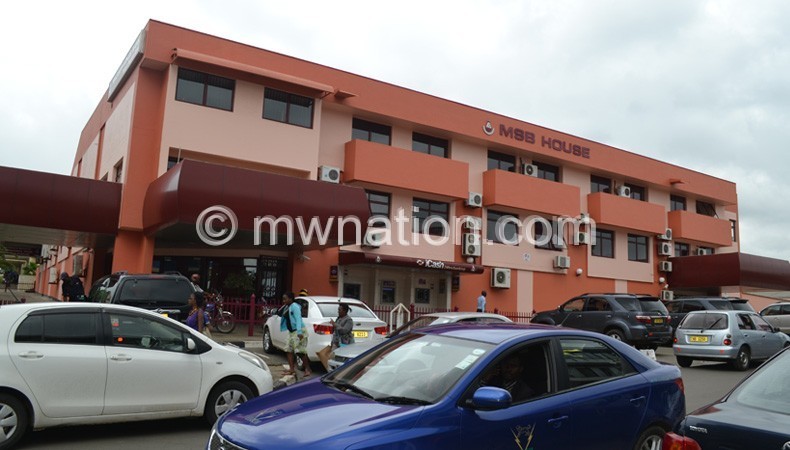MSB speaks on risk profile
Wholly State-owned Malawi Savings Bank (MSB), currently undergoing recapitalisation process that will see government diluting its shareholding, has said the substitution of its toxic assets with promissory notes has improved its balance sheet and risk profile.
MSB chief executive officer Ian Bonongwe, in an exclusive interview with Business News in Blantyre on Wednesday, said the promissory notes have made a difference because the bank is now able to offer security where it is demanded by customers.
He said: “The game has now changed. The promissory notes have energised us. They have been a stabilising factor, our deposit mobilisation has improved and, above all, our balance sheet is now strong because we have performing assets following the removal of the toxic assets.

Earlier this year, the Malawi Government, through the Public Private Partnership Commission (PPPC), invited bids from strategic investors to buy its stakes in MSB and Indebank Limited, in which Capital Hill has majority stake.
Through the transactions, government wanted to, among other things, ensure that MSB and Indebank meet new Basel II regulatory requirements in terms of capitalisation.
National Bank of Malawi (NBM) has since been named the preferred bidder for Indebank while FDH Financial Holdings Limited—owners of FDH Bank—was the sole bidder of MSB. FDH Bank offered K4.5 billion, representing the value of MSB’s 70 percent shares.
The MSB deal is facing resistance from several stakeholders, including opposition parties, the Budget and Finance Committee of Parliament, civil society organisations (CSOs) and more recently some concerned MSB employees who obtained an injunction against the sale. The court order has since been lifted.
In early May, revelations by The Nation that government had taken over MSB’s toxic loans worth K6.4 billion owed by politically linked companies and individuals attracted public anger as the move was seen as a bail-out package.
Commenting on increased interest by stakeholders in the MSB deal, Bonongwe—who was in the company of his head of credit George Sibale, head of corporate banking Ted Chanza and marketing and business development manager Brenda Chilima—said the public reaction has demonstrated that MSB is a strategic institution belonging to Malawians.
However, he said there is need for commentators to behave cautiously to avoid causing a scare.
Earlier this week, a financial market analyst and the Economics Association of Malawi (Ecama) warned that the uncertainty surrounding the bank’s sale could attract a run on the institution. They were reacting to a statement by the Ministry of Finance, Economic Planning and Development that negative publicity around the treatment of the toxic assets saw MSB face a threat of a bank run between February and April 2015 when deposits exceeding K11 billion were withdrawn without replacement.
However, Bonongwe said the public has been working on outdated information as MSB’s business status is far from reaching crisis levels.
He said: “The fact that we are still in the market, working, speaks volumes about MSB’s status. Our performance in the first four months of this year shows that we are on track taking into account the negative image and environment we have operated in.”
On his part, Sibale said in banking business there are always deposits and withdrawals which strike a balance. While admitting there was a time withdrawals exceeded deposits, he said withdrawals are part of business.
MSB has 74 points of representation across the country with a workforce of about 600.





